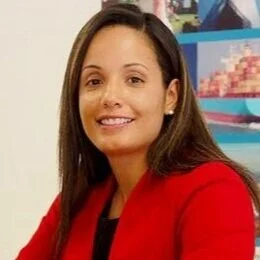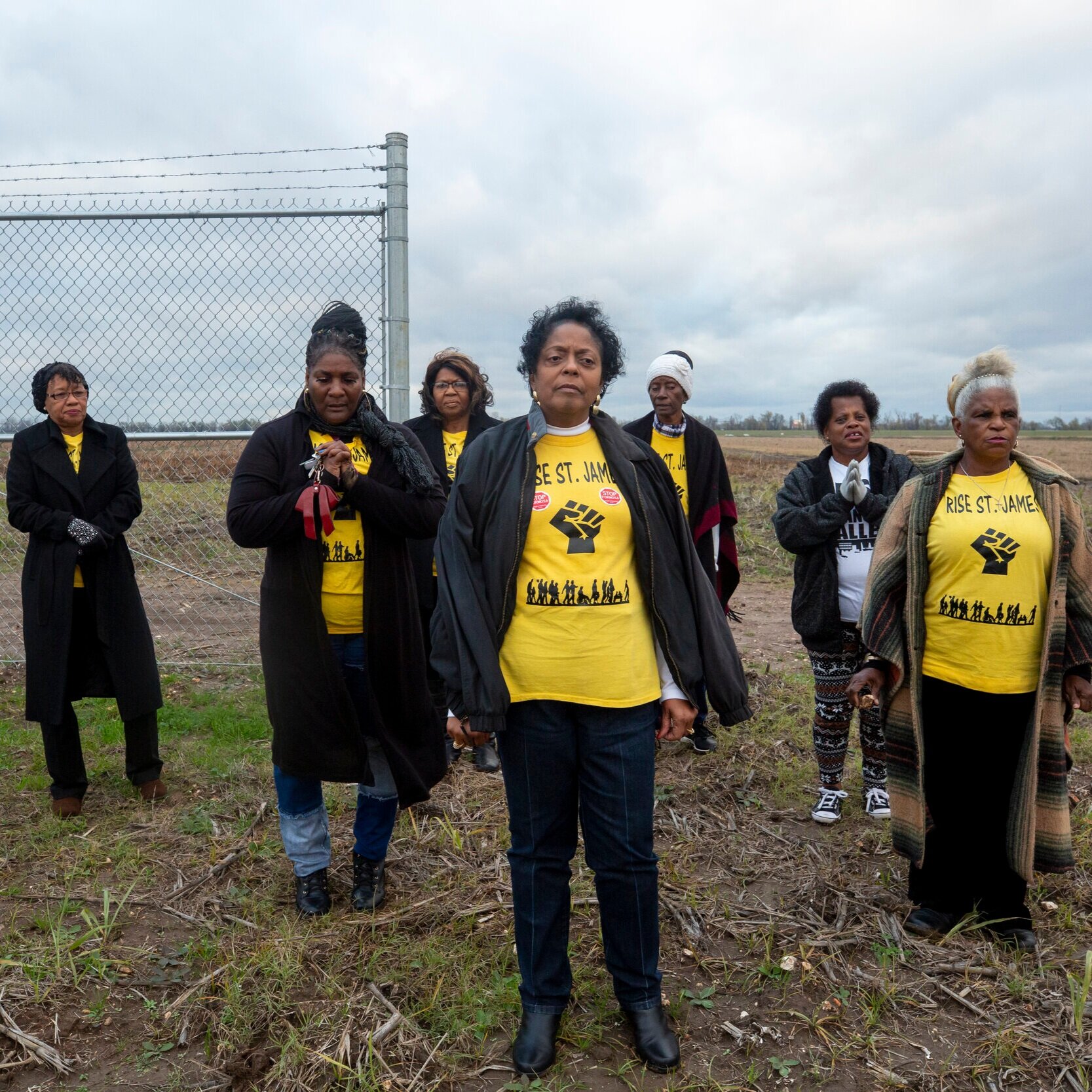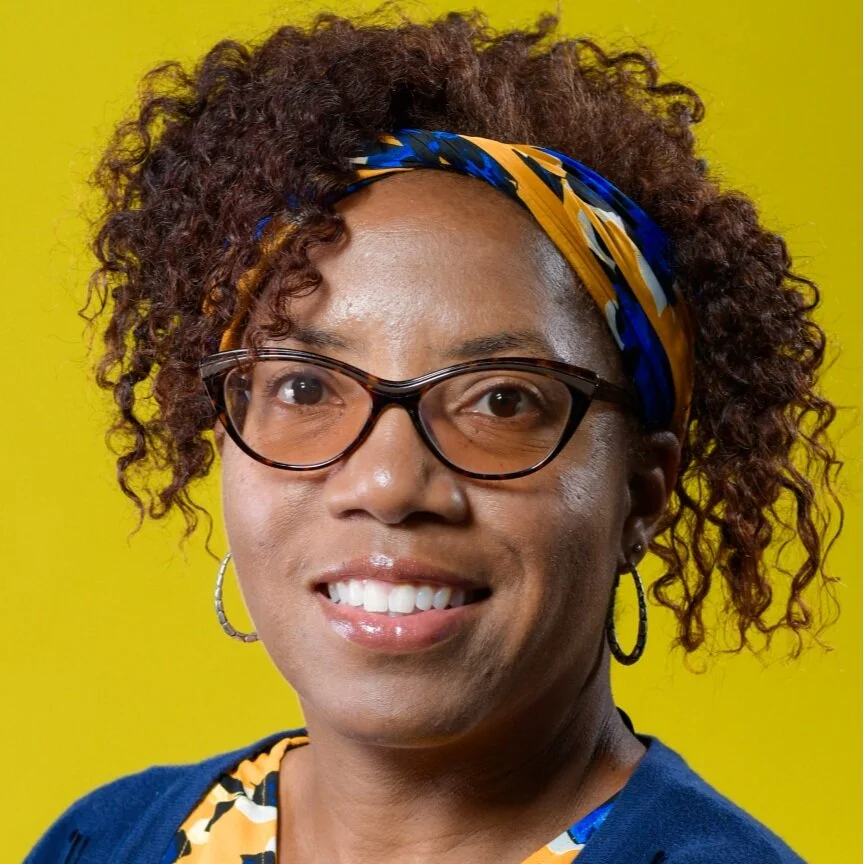What's Working: Wins to Build On
For this month’s Learning Lab, we asked some of the Hive Fund’s grantee partners to share wins, lessons learned and opportunities to scale their organizing and advocacy work for climate, gender and racial justice in 2021 and beyond.
Texas
In February, warming in the Arctic plunged extremely cold air into southern regions across the US and around the world. Millions in Texas lost power and water for days and weeks as the state’s deregulated and gas-dependent electricity grid failed. Many families whose homes were damaged and destroyed have still not recovered and trauma is on-going. During the extreme weather event, the largest oil, gas and petrochemical plants — located disproportionately in Black and brown communities along the Gulf Coast — flared or released massive quantities of harmful gases, darkening the skies of East Texas for miles. Organizations across the state are working to stop expansion of fossil fuel infrastructure, hold polluters responsible, and transition toward a more sustainable and just economy.
Leader
Dr. Bakeyah Nelson is a public health and health equity expert, and director of Air Alliance Houston, a community-based group located near the Port of Houston.
Progress
Dr. Nelson describes a “second storm” any time a hurricane or disaster happens in the region because facilities are generally let off the hook for illegal pollution releases during extreme weather events. Because of all the advocacy Air Alliance Houston and others did after Hurricane Harvey, agencies deployed air monitoring resources and collected data during the February storm. Air Alliance Houston is now working to pass state legislation to ensure facilities are held accountable for their illegal pollution releases.
Their years of coalition and community organizing also delivered a related victory on March 11 when Harris County sued to stop a planned I-45 freeway expansion that could displace and dump even more fossil fuel air pollution on Black and brown communities. Their civil rights complaint was cited by the Federal Highway Administration in their request to pause any forward movement on the project. It’s not over yet, but these huge steps in the right direction show the power of organizing.
“Communities of color and working-class neighborhoods are unable to fully recover before the next man-made disaster due to a long history of environmental racism that has put them at greater risk of suffering the adverse impacts from disasters and with fewer resources to rebuild their lives. For too long, Texas decision-makers have treated them as expendable while giving fossil fuel corporations everything they want. We’re working to make sure no communities are seen as expandable as we create a more equitable and sustainable future.”
Opportunity:
Air Alliance Housing is planning to continue building on these successes by combining legal work with community organizing. Thanks to an expected increase in funding this year, they will be able to hire their first attorney. With adequate funding, they can significantly increase air permit challenges, challenges to limit and prevent new facilities and expansion of existing facilities, and hold more facilities and agencies accountable.
Photo by Veronica Cardenas for The Intercept
Leader
Bekah Hinojosa leads the Sierra Club’s Permian-Gulf Just Transition work in the Rio Grande Valley of Texas, where her roots go back before the state of Texas was established. At age 24, she began campaigning against proposed oil and gas plants near her home.
progress
Dedicated local and international organizing, legal, and communications work by the Sierra Club, the Carrizo Comecrudo Tribe, Another Gulf is Possible, Irish and French environmental groups, and many others has created huge roadblocks for a planned liquefied natural gas (LNG) export project in South Texas. Under intense pressure from impacted communities, French and Irish backers of NextDecade's planned Rio Grande LNG export terminal in Brownsville recently pulled their support. The Port of Cork let their MOU on importing natural gas from Rio Grande LNG expire and will not renew it. The French utility ENGIE withdrew negotiations for a $7 billion contract to import fracked gas from Rio Grande LNG, citing gas drilling pollution in West Texas’ Permian Basin and community opposition in Brownsville.
"A global tide is turning. Texas frontline communities working with activists in Ireland and France have indicated to the world that importing dirty fracked gas is a terrible investment and would devastate both public health and the climate. French and Irish supporters abandoning NextDecade's Rio Grande LNG project is a massive roadblock to the facility's construction. We will continue to support bottom-up organizing and long-term leadership growth in the Rio Grande Valley region to prevent these fossil fuel projects from ever being built because we know that organizing works."
opportunity
There are almost 20 approved or proposed LNG export terminals located along the Texas and Louisiana Gulf Coast. Oil and gas extraction in West Texas is expected to double in the next three years. New pipelines from the Permian to the Gulf have been proposed to refine and export this oil and gas around the world. Community organizers in Brownsville will be ramping up to protect their communities, hiring a new organizer with increased funding from Hive Fund, and continuing to organize against a proposed oil refinery, three LNG export terminals, and a gas pipeline slated to be built on pristine wetlands and sacred tribal lands in the Brownsville area.
The three proposed LNG export terminals near Brownsville alone would have the equivalent annual climate damage of 61 coal-fired power plants. These processes also emit toxic waste that concentrates in the lungs and bodies of Black, brown, and Indigenous communities who often live nearby. There is an urgent need for philanthropic support for groups working to stop oil and gas expansion and help Texas transition to a cleaner and more just future.
Louisiana
Louisiana is an epicenter for extreme climate impacts as well as the oil and gas industries that emit planet-warming pollution. It’s also an epicenter for some of the most promising and innovative climate solutions, led in large part by a leaderful network of Black, brown, and Indigenous women who are notching some impressive wins.
Sharon Lavigne, center. Photo by L. Kamisu Harris.
leader
Sharon Lavigne, a retired teacher and founder of RISE St. James community group in Cancer Alley has worked alongside others for years to stop Formosa Plastics from building one of the world’s biggest petrochemical manufacturing complexes to turn fracked gas into plastics and chemicals. The facility, planned for just a mile and a half from her front door, would potentially double the risk of cancer in St. James parish.
progress
Years of intensive organizing, communications, and litigation work by RISE St. James and allied groups is paying off. Last summer, Formosa announced that it will temporarily defer construction on the plant. Then last fall, the US Army Corps of Engineers withdrew its permit for the facility just days before having to defend it in a lawsuit filed by RISE and others, and the Louisiana Department of Air Quality withdrew the project’s air permits. In March 2021, organizing groups submitted more than 40,000 comments to the Army Corp of Engineers asking that they fully rescind the Formosa permits.
“Industries come to Black communities because they think no one’s going to say anything. They think no one is going to fight. But they’re wrong. We’re organizing for a Parish-wide moratorium because we have so many industries here. If we get Formosa and YCI (a Chinese methanol plant), and the South Louisiana Methanol expansion, and the Argon storage tanks--we won’t be able to breathe the air. The Parish Council has the power to impose a moratorium. They just don’t realize the full impact of the dangers and say they are concerned with jobs. But I’d rather have a job that’s not going to poison me. I want a better economy and jobs, but I don’t want people to get sick and die in the process.”
opportunity
2021 is a critical time for these groups, many working on shoe-string budgets, to lock in these local victories and leverage their wins to achieve a Parish-wide moratorium on all new petrochemical construction and expansion. At least seven petrochemical facility expansions are in the works in the Parish now, including LNG export facilities, methanol plants, syngas plants, and tank farms. Fighting these polluting facilities one by one is exhausting, but is leading to momentum toward a more comprehensive approach. RISE St. James recently got support from a broad statewide coalition of environmental, environmental justice, housing, faith-based, and other groups to support their calls for a moratorium.
Leader
Colette Pinchon Battle is the executive director of Gulf Coast Center for Law and Policy and a leader within the Gulf South for a Green New Deal — a frontline-led regional formation of nearly 200 groups working for climate, racial, and economic justice.
progress
In 2019, tribal nations, neighborhood associations, faith groups, student groups, community groups, and other groups representing those on the frontlines of the climate crisis formally launched a unified effort across five states under the auspices of Gulf South for a Green New Deal. Gulf Coast Center for Law & Policy facilitated a six-month, collective, bottom-up process to develop a policy platform rooted in the values and priorities of the most impacted communities. Thanks to years of building trust and relationships and a unified agenda, a broad coalition of frontline groups and allies in Louisiana are positioned to advocate for and shape recommendations to meet the state’s goal of cutting global warming pollution 40-50% by 2030.
“The Gulf South has been one of the first and hardest-hit areas impacted by extractive economies. We sit at the intersection of climate disaster and environmental racism, so by necessity, our people have been leading some of the strongest organizing efforts in the country. Our region-wide organizing efforts are paying off, and we're starting to win in a part of the country that most had written off. With a little more support and a willingness to follow Black, brown, and indigenous organizations, the South can lead this nation to reverse the worst impacts of climate change and start to heal the planet."
opportunity
With increased funding, groups representing the most impacted communities in Louisiana can scale up their coordinated organizing, advocacy, and communications efforts to ensure a strong set of recommendations are adopted by the end of 2021 and then enacted through laws and regulations over the coming years, despite a heavy oil and gas industry presence throughout the process.
Georgia
Black voters broke records for turnout in 2020. This level of civic participation and its transformative impact on state and national politics was the result of both long-term organizing and hard-hitting campaigns by deeply rooted community organizations.
leader
When reflecting on key learnings from 2020, Wanda Mosley, National Field Director of Black Voters Matter said one of her greatest insights was, “we can meet our goals and beat all of our expectations by being ourselves and centering our communities.”
progress
Black Voters Matter (BVM), a Georgia-based Hive Fund grantee partner, roots its work in culture, celebration and joy. BVM resources small organizations in 50 of Georgia’s 159 counties, and leans into culture and traditions to engage people. One successful example was their Collard Green Socials. Eating collard greens and black-eyed peas on New Year's Day is an important African American tradition. These foods are said to bring good luck in the coming year. Black Voters Matter bought more than 10,000 bunches of collard greens from Black farmers across Georgia and gave them away along with black-eyed peas and cornbread in the final week of 2020 just as the community members it was seeking to reach would be shopping for these New Year's staples. The Collard Green Socials were outdoor, COVID-friendly gatherings that reinforced community cohesion and tradition in a time of physical distancing. Black Voters Matter and its partners provided attendees with voter education materials and encouraged them to take advantage of the final days of in-person early voting. In addition to driving civic engagement, this was an opportunity to support and highlight Black farmers, many of whom have been challenged by COVID-19.
“While there are many stories of what happened in Georgia, one thing is clear — this is the work of many leaders over many years. There were barbershop owners, beauty salons, church ladies, aunties and uncles — people who have been here and desired to have a voice and build power, but didn’t have the resources to do so. One thing that we realized is that there are people who want to build power everywhere. There are people who have been building power outside of Atlanta for a long time, but increased resources make a big difference. If funders would continue to believe in us, trust us and give us the space to determine the best way to do our work, we can continue to see this type of success.”
opportunity
Voters did not vote down-ballot in the Public Service Commission runoff race at levels anywhere close to the senate races. In 2021, BVM and other civic engagement organizations will educate communities about the Public Service Commission as part of a broader utility accountability campaign that will also include education about municipally-owned utilities in places like Albany. These campaigns aim to lower energy bills and introduce renewable energy options.







